Tongue-tie assessment and division services
Tongue-tie Assessment (Frenulotomy)
What is tongue-tie?
Tongue-tie is a condition which affects up to 1 in 10 babies and is more common in boys than girls. Most of us have a lingual frenulum (a membrane situated towards the base of the tongue which extends from the under surface of the tongue into the floor of the mouth) so the presence of a visible or palpable lingual frenulum is normal anatomy. However, in some individuals this lingual frenulum may be short, tight and attached close to the tip of the tongue and/or on the gum and cause restrictions in tongue movement and function. These restrictions may then cause feeding difficulties. These restricted lingual frenula are what we call a ‘tongue-tie’.
For more detailed information on tongue-tie see my Parents Guide.
Additional information can be found in my book ‘Why Tongue-tie Matters’
For more detailed information on tongue-tie see my Parents Guide.
Additional information can be found in my book ‘Why Tongue-tie Matters’
What to Expect from Your Consultation
As an IBCLC (Lactation Consultant) I offer full breastfeeding assessment and support as an integral part of my tongue-tie service. Frenulotomy consultations include assessment, feeding support and free email/phone/online follow up for up to 3 weeks after.
Tongue-tie Division Procedure
If you choose to go ahead, I will swaddle your baby in a towel or blanket and place them on a couch under a bright lamp or surgical lighting. If I have an assistant, they will hold your baby’s head (or you can, if preferred). If I am working alone, a parent will need to hold the baby's head.
I will use sterile, blunt-tipped scissors to snip the frenulum (tongue-tie) while lifting the tongue with my index finger. The frenulum will be divided, creating a small diamond-shaped wound.
I will use sterile, blunt-tipped scissors to snip the frenulum (tongue-tie) while lifting the tongue with my index finger. The frenulum will be divided, creating a small diamond-shaped wound.
In clinic consultation
For breastfed/combination fed babies
£220
Up to 75 minutes
-
Assessment
-
tongue-tie divison (if needed)
-
feeding support
-
free follow up for 3 weeks
-
up to 90 minutes and flange fitting (+ £20)
In clinic consultation
For fully formula fed babies
£200
Up to 60 minutes
-
Assessment
-
Tongue-tie division (if required)
-
feeding support
-
free follow up for 3 weeks
In clinic consultation
Combined feeding, tongue-tie assessment and osteopathic clinic
£150
90 minutes
Available 2nd Monday of each month
-
Feeding support and tongue-tie assessment with sarah oakley
-
Osteopathic clinic with Celia Crooke
-
Tongue tie division if needed (+ £100)
Lactation consultancy
Infant Feeding
What is a lactation consultant?
As an IBCLC, I am specially trained to provide expert support for breastfeeding mothers. My certification involved a 4 hour degree level examination. To enter the exam practitioners must have completed a set number of breastfeeding counselling hours over a set period. In my case I had to demonstrate that I had spent 2500 hours supporting breastfeeding mothers before I was eligible to sit the exam.
IBCLCs hold the highest internationally recognised qualification in lactation and are required to stay up to date with the latest practises through regular professional development.
Once qualified IBCLCs are required to prove they have kept up to date every 5 years by submitting evidence of 75 hours of continuing professional development. There also used to be a requirement to resit the exam every 10. I have sat the exam twice, once in 2009 and again in 2019.
IBCLCs come from a variety of backgrounds in medicine, nursing, midwifery and breastfeeding counselling. Most are women. But a few are men as there is no requirement to have breastfed yourself in order to be an IBCLC. It is the highest recognised qualification in breastfeeding and is recognised internationally.
Lactation Consultants have specialist skills to support mothers and babies with the more complex issues such as prematurity, twins and multiples, sick babies and those with special needs, poor weight gain and low milk supply, sucking problems, tongue-tie and cleft palate.
Many people within the NHS and private sectors call themselves breastfeeding consultants or specialists but do not have the IBCLC credential. IBCLCs are regulated by the International Board of Lactation Consultant Examiners (IBLCE) and have to follow a strict code of conduct. You can check that the person supporting you is an IBCLC on the IBLCE public registry.
IBCLCs hold the highest internationally recognised qualification in lactation and are required to stay up to date with the latest practises through regular professional development.
Once qualified IBCLCs are required to prove they have kept up to date every 5 years by submitting evidence of 75 hours of continuing professional development. There also used to be a requirement to resit the exam every 10. I have sat the exam twice, once in 2009 and again in 2019.
IBCLCs come from a variety of backgrounds in medicine, nursing, midwifery and breastfeeding counselling. Most are women. But a few are men as there is no requirement to have breastfed yourself in order to be an IBCLC. It is the highest recognised qualification in breastfeeding and is recognised internationally.
Lactation Consultants have specialist skills to support mothers and babies with the more complex issues such as prematurity, twins and multiples, sick babies and those with special needs, poor weight gain and low milk supply, sucking problems, tongue-tie and cleft palate.
Many people within the NHS and private sectors call themselves breastfeeding consultants or specialists but do not have the IBCLC credential. IBCLCs are regulated by the International Board of Lactation Consultant Examiners (IBLCE) and have to follow a strict code of conduct. You can check that the person supporting you is an IBCLC on the IBLCE public registry.
What to Expect from Your Consultation
When you book an appointment with me, I’ll take the time to understand both your and your baby’s unique needs. I provide personalised support and advice, offering practical solutions to help make breastfeeding a smoother experience.
During your consultation, I’ll ask questions about your baby’s health and feeding history to ensure I can provide the best care. This is because, as a private practitioner, I don’t have access to NHS health records—so the more information you can provide ahead of time, the better.
During your consultation, I’ll ask questions about your baby’s health and feeding history to ensure I can provide the best care. This is because, as a private practitioner, I don’t have access to NHS health records—so the more information you can provide ahead of time, the better.
Why Choose Me as Your IBCLC?
As a regulated IBCLC, I adhere to a strict code of conduct, ensuring that I offer the highest standard of care. Many healthcare professionals may offer breastfeeding support, but only IBCLCs have undergone extensive, specialised training specifically in lactation. When you work with me, you’re getting expert advice from someone with the highest level of qualification in breastfeeding.
If you’d like to confirm my IBCLC certification, you can check it on the IBLCE public registry.
As an IBCLC I can offer parents antenatal consultations to prepare for breastfeeding and early parenthood as well as support with feeding after the birth. As an expert in infant feeding I can also offer training to other breastfeeding supports and healthcare professionals.
If you’d like to confirm my IBCLC certification, you can check it on the IBLCE public registry.
As an IBCLC I can offer parents antenatal consultations to prepare for breastfeeding and early parenthood as well as support with feeding after the birth. As an expert in infant feeding I can also offer training to other breastfeeding supports and healthcare professionals.
In clinic consultation
£120
-
breastfeeding assessment and support
-
up to 90 minutes and flange fitting (+ £20)
-
in clinic
In clinic consultation
£100
-
Assessment and support
-
In clinic
Video call
£75
-
breastfeeding assessment and support
-
online video call
Follow up Appointments
Video call
With Sarah Oakley
£40
Up to 30 minutes
Video call
With Jo Thompson
(Breastfeeding Counsellor)
(Breastfeeding Counsellor)
£20
Up to 30 minutes
In clinic
With Sarah Oakley
£75
Up to 45 minutes
Home Visit
With Jo Thompson and Justine Feith
(Breastfeeding Counsellor)
(Breastfeeding Counsellor)
£50
Within Cambridgeshire
Family support
Antenatal Breastfeeding Support
Group Antenatal Workshops
This two-day small group workshop provides you with the knowledge and tools to help establish a strong breastfeeding relationship with your baby. We cover the practical aspects of breastfeeding and what to expect, aiming to boost your confidence and support your well-being as you settle into your new role as a parent.
Individual Antenatal Sessions
These sessions are particularly helpful for parents who have had difficulties breastfeeding their first baby, for families expecting twins, or where there are concerns about the impact of any additional needs the parents or baby may have.
Individual
£50
These sessions are particularly helpful for parents who have had difficulties breastfeeding their first baby, for families expecting twins, or where there are concerns about the impact of any additional needs the parents or baby may have.
Group
£70
Per family for 2 hours
This small group workshop aims to provide you with the knowledge and tools to help you establish a good breastfeeding relationship with your baby. Workshops are offered at the Burwell Clinic.
Lactation consultancy
Breast Pump Flange Fitting
How Can Pumping Be Made More Comfortable and Efficient?
Many families express milk for their babies and there can be many reasons for doing this including feeding a non latching baby, returning to work, increasing milk supply, providing milk for top ups, and inducing lactation.
But a lot of families are confused by the wide range of pumps on the market and pumping is sometimes uncomfortable and time consuming and doesn’t always produce the quantities of milk we would like.
These sessions will help you choose the right pump for your needs and also help you with flange fitting. If a flange is not the correct size this will impact comfort and efficiency during pumping. In many cases the flange supplied with the pump is too large. We will also explore pumping techniques and agree a pumping pattern to suit your needs.
But a lot of families are confused by the wide range of pumps on the market and pumping is sometimes uncomfortable and time consuming and doesn’t always produce the quantities of milk we would like.
These sessions will help you choose the right pump for your needs and also help you with flange fitting. If a flange is not the correct size this will impact comfort and efficiency during pumping. In many cases the flange supplied with the pump is too large. We will also explore pumping techniques and agree a pumping pattern to suit your needs.
Pump flange fitting
In clinic
£50
60 minutes
A one hour session to look at expressing schedules, pumps and try different flanges to ensure the best fit for efficiency and comfort.
Family Support
Other services
Three Step Rewind with Jo Thompson at the Burwell Clinic
The three step rewind is a gentle process using NLP (Neuro Linguistic Programming) techniques and deep relaxation that help to release unwanted, negative or traumatic feelings attached to your birth or the perinatal period, including breastfeeding.
The person going through the process is always in control and doesn’t even have to talk about the experience if they don’t want to.
The course is set over three sessions, which can be face to face or via Soom over about a month.
The person going through the process is always in control and doesn’t even have to talk about the experience if they don’t want to.
The course is set over three sessions, which can be face to face or via Soom over about a month.
Wellington Baby Wearing
On the third Monday of each month, Amy from Wellington Baby Wearing will be offering one to one appointments at the Burwell clinic.
Osteopathy Clinic
Combined feeding, tongue-tie assessment and osteopathic clinic appointments are available with Sarah and Osteopath Celia Crooke on the second Monday or each month.
In clinic consultation
Combined feeding, tongue-tie assessment and osteopathic clinic
£150
90 minutes
Available 2nd Monday of each month
-
Feeding support and tongue-tie assessment with sarah oakley
-
Osteopathic clinic with Celia Crooke
-
Tongue tie division if needed (+ £100)






